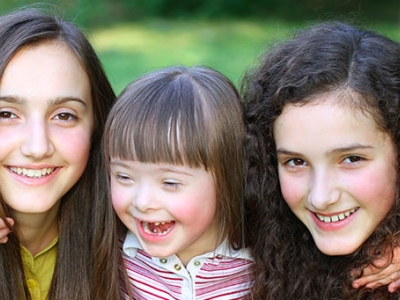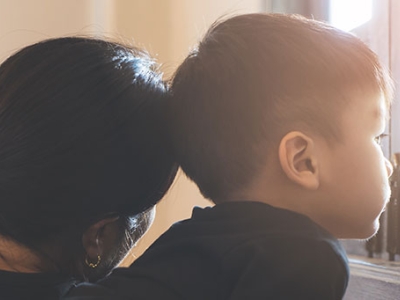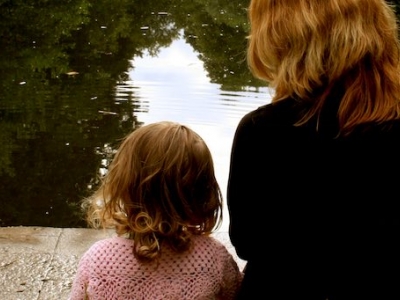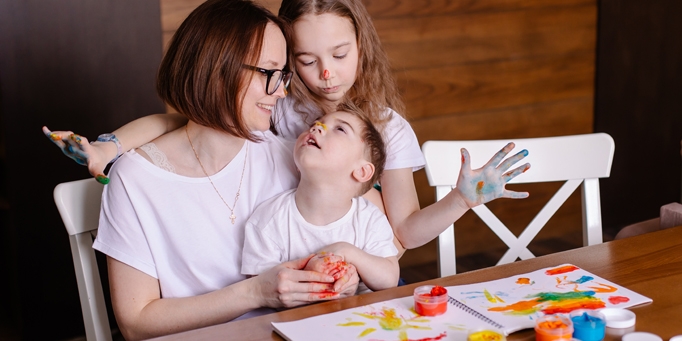
What do families living with disability really need?
Practical tips from Accessibility Ministry Advisor Bec Baines.
It’s more than likely that within your church community and mine, there are parents or carers of young people with disability. We might see them each week at church—on time and ready to go or potentially arriving late and a little frazzled—or when it comes to Sundays, they may be more absent than present. Whatever the case may be, parents and carers of young people with disability need love and support; they need to remain connected to the church community as part of their safe haven. I asked the members of the 139 Collective—a support group for Christian parents of children with disabilities—what our churches can do to provide these things.
Acknowledging the difficulties
Firstly, it helps when people acknowledge the difficulties that families with disability face on a daily basis. In his book Wrestling with an Angel, Greg Lucas describes a typical day in his household:
Almost every morning I have to restrain my son physically. To get him out of bed, change his diaper, and clean his body usually requires a degree of sheer, measured force … Many mornings I leave Jake’s room dejected, hurt, and emotionally drained. Many evenings, in desperation, I find myself restraining his struggles by wrapping him in my arms against his will and gently whispering, ‘I love you. I love you. I love you—no matter what’.
This may not be every family’s experience of caring for their child with disability, but it certainly gives insight into the physical and emotional toll of even the basic tasks of getting ready for the day. While young people in typical families grow and take to daily tasks independently and without intervention, families with disabilities often need to continue supporting their child, perhaps in more complex ways as they grow. Parenting a child with disability is a different experience because often it requires long-term 24-hour care and support.
The first step in supporting parents and families is to recognise the hardships and strains of raising a young person with disability. The load for parents is often considerably more, as they help manage developmental delays, social anxiety or experiences with sensory overload. There may be physical strains as well as the mental load of thinking about the future and what kind of life their child will have. As parents interact with us, their church community, they are also caring for a child whose needs aren’t always understood by others or whose desires are not being met, which may bring about meltdowns or acts of defiance. This is not due to bad parenting.
Participating in church
Christian parents are doing their best to bring their child with disability into a community of believers by coming to Sunday services or mid-week ministries. This can potentially be overwhelming and anxiety inducing for the young person, which could result in a display of negative behaviours. A service or ministry may not be set up to cater for the young person’s accessibility needs, which may also impact them.
When parents of young people with disability go to church, they want to be present in the community, engage with other people and rest in God’s word. But sometimes parents are tapped on the shoulder and asked to tend to their child, which removes them from community; at other times, parents have been shown the ‘parents’ room’ and encouraged to stay there. Now, some people love the parents’ room, but others do not. The best way to support parents or carers is to give them the option of being part of the main body or utilising the room, and support whichever they choose. When there is a lack of sympathy, understanding and allowances for the needs of families with disability, they may find it easier not to turn up to the service, especially if their day has already got off to a challenging start.
Practical support
Of course, you could simply ask the families in your church what you could do to help, or what supports they might need, but a more helpful thing would be to offer random acts of kindness that help take a load off some day-to-day tasks. One of the easiest ways this can be achieved is by dropping off a freezer-ready meal now and then with a note to say you were thinking of them. Other random acts of kindness could also include offering to watch over their child during morning tea at church or inviting them over for supervised play dates. It means the world to parents and carers when their child is invited over, especially when they are included on a party invite list.
Some parents may appreciate a Bible study that runs during school hours, with a creche for little ones. Other parents have appreciated a single-gendered Bible study, where one parent is freed up to attend while the other manages the bed-time routine. Participating via Zoom or livestream, while not ideal for maintaining community connections, can still be helpful for parents or carers who may struggle to turn up in person.
To make the most of school hours or other available time slots, you could arrange for social catch-ups either in their home or close to their home to reduce their commute time.
If you are planning social outings and events, continue to invite parents and families, even if your invitations are often declined. Being invited shows people that they are being thought of and remembered and that their presence is valued.
Prayerful support
It means a lot for parents or carers to have people come alongside them to pray through their journey of parenting with disability. Prayer to cover the joys, challenges, hardships and stressors of the day-to-day, and prayer for the future. Partnering in bringing their prayers to God reminds parents and carers that they’re not alone as they care for their child with disability. If you’re not always able to get together to pray, letting them know that you’re praying and asking for prayer points is encouraging; you could also write your prayer in a text message or give them a quick phone call to pray together.
There are so many simple, but meaningful ways that we can support, love, encourage, and partner with parents and carers of young people with disability. Who might you reach out to within your church community this week?
---
Bec Baines works with Youthworks’ Ministry Support Team as the first ever Accessibility Ministry Advisor for the Sydney Anglican Diocese.
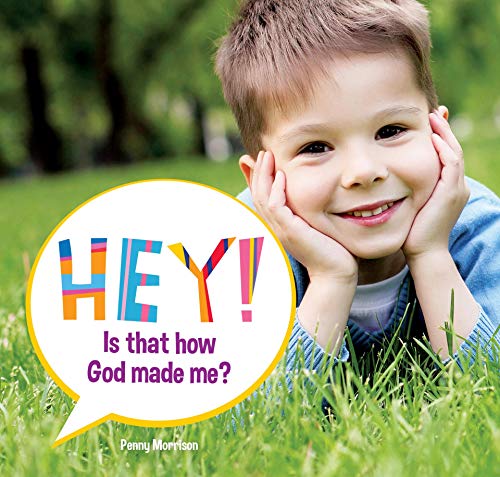
Hey! Is That How God Made Me?
From the youngest age, our children should know that they belong to God! He made them in wonderful detail-right down to the shape of their eyes, ears, nose and mouth. This delightfully playful book will enchant little ones ages 1-4, introducing them to their loving Creator.
For more articles from Growing Faith, subscribe to our monthly e-newsletter.
To hear about the latest books and resources from Youthworks Media, subscribe here.


